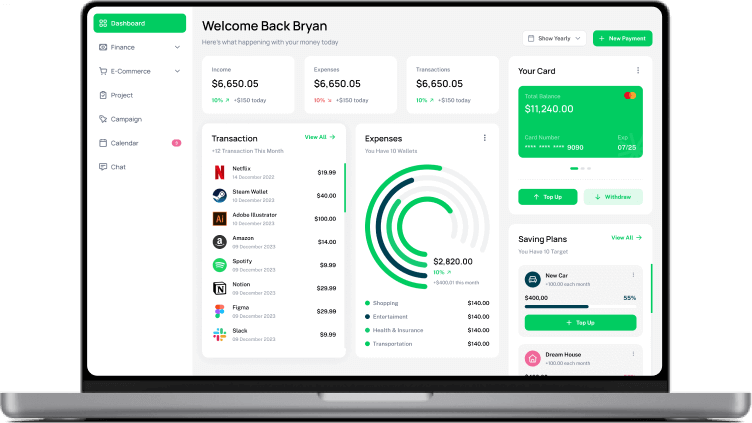Sales Pipeline
Definition: A sales pipeline is a visual graphical representation of the stage that prospects are in within the sales process. It is a tool that is used by sales teams to understand the stage a given prospect is in, right from the initial interaction until closing. The pipeline is the organized and systematic way through which progress made with sales opportunities can be tracked and future sales forecast.
Detailed Explanation
The sales pipeline is one of the most important sales management tools. It helps you, visually and easily, keep an eye on the health of your sales process. It is broken down into a few stages that are representative of the steps taken during the sales process: for example, prospecting, qualification, proposal, negotiation, and closing. They can prioritize their efforts, find bottlenecks, and work on devising strategies to get the deal moving.
Components of a sales pipeline:
- Stages: Phases that the prospect will go through in the sales process. For example, there may be lead generation, qualification, negotiation, and closing stages.
- Opportunities: A sales opportunity for the sales team that is tracked in terms of pipeline and quantified by the potential value.
- Conversion Rates: The percentage of the prospects moving from one stage to the next, which is a reflection of the effectiveness of strategies used.
- Sales Velocity: How quickly a deal moves through the pipeline. Often effective at the estimation of revenue.
Importance in Sales Process
- Visibility: Clearly shows the number and value of deals in each stage of the sales process.
- Forecasting: Ability to predict sales revenue while analyzing the deal flow progression in the pipeline.
- Efficiency: It pinpoints where the deals are slowing down so that sales teams can be proactive in addressing matters.
- Performance Tracking: Enables the tracking of individual and team performance in comparison to targets set and relevant benchmarks.
- Strategic Planning: Supports strategic planning with insights on which strategies and tactics move deals forward.
Real-World Example
A real estate agency manages its property sales using a sales pipeline. The stages it includes are initial inquiry, property viewing, offer, negotiation, and closing. An agent keeping track of the pipeline will be able to see how many prospects are at each stage, allowing them to prioritize follow-ups and gain an idea of how many sales are likely to close in the coming month.
For a software company, those stages of sales would include lead generation, initial contact, demonstration, proposal submission, and final agreement. Sales managers, on the other hand, would use the pipeline to track how many software licenses are likely to be sold and identify which sales representatives are actually moving prospects successfully.
- Maximize Your Earnings: The Benefits of Using Flow Commission for Real-Time Sales and Commission Tracking Insights
- Strategies to Effectively Align Sales Compensation with Specific Business Goals
- Unlock Sales Success: How Flow Commission’s Automated Tracking Software Transforms Your Team’s Performance
- How to Build Effective Sales Performance Reports for Driving Efficiency
- Stay Ahead of the Competition: Leveraging Flow Commission’s Deal Management and Incentive Strategies

